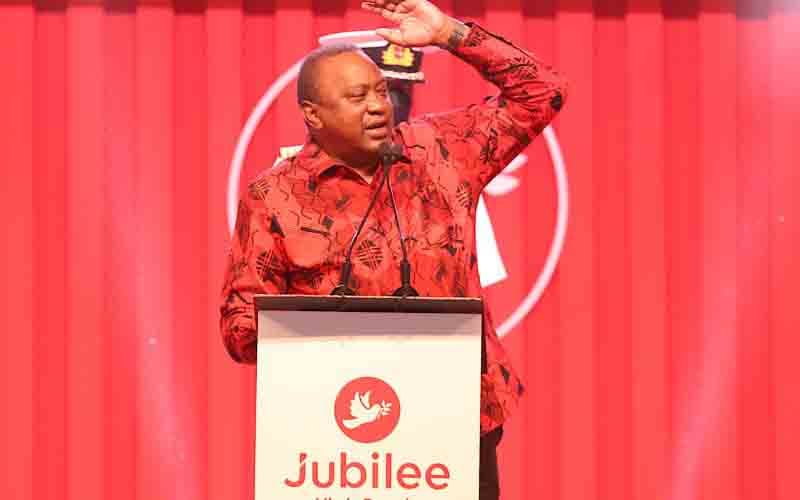We're loading the full news article for you. This includes the article content, images, author information, and related articles.
Former Interior Cabinet Secretary Fred Matiang'i announced the Jubilee Party's intention to collaborate with the IEBC to boost youth voter registration, aiming to increase participation in upcoming elections.

The Jubilee Party is set to launch a significant voter registration drive targeting young Kenyans, with former Interior Cabinet Secretary Fred Matiang'i indicating plans to partner with the Independent Electoral and Boundaries Commission (IEBC). Speaking in Nakuru on Friday, October 3, 2025, during a meeting with Gen Z youth, Matiang'i stated he would propose to Jubilee leadership interventions to support mass voter registration efforts.
Matiang'i emphasised the party's commitment to facilitating the registration process, encouraging a large turnout among young Kenyans ahead of future elections. He underscored the importance of proactive engagement, quoting, “Don’t agonise, organise.”
This initiative follows a historical trend of political parties in Kenya actively engaging in voter mobilisation drives, particularly in the lead-up to general elections. Such efforts are crucial for shaping the electorate and influencing election outcomes. The focus on youth voter registration is particularly salient given Kenya's youthful demographic, where a significant portion of the population is under 35 years old, representing a powerful, yet often under-registered, voting bloc.
Voter registration in Kenya is governed by the Elections Act, 2011, which mandates the IEBC to continuously register eligible citizens. Political parties are permitted to encourage voter registration, provided their activities align with electoral laws and do not interfere with the IEBC's independent mandate. The IEBC is the sole body responsible for maintaining the national voters' register, ensuring its accuracy and integrity.
Analysts suggest that this development could significantly impact public discourse and policy implementation. Stakeholders are calling for greater clarity on the timelines, financial implications, and safeguards to ensure the transparency and fairness of the proposed voter registration drive. The IEBC, as the primary custodian of electoral processes, will play a critical role in collaborating with political parties while maintaining its neutrality.
While increased voter registration is generally positive for democratic participation, potential risks include allegations of partisan influence over the registration process, resource allocation disparities, and the need for stringent oversight to prevent any manipulation of the voters' roll. Ensuring that the drive remains inclusive and accessible to all eligible youth, regardless of political affiliation, will be crucial.
Specific details regarding the budget allocated for this initiative, the exact timeline for its implementation, and the comprehensive strategy for engaging with the IEBC remain unclear. Further information is awaited on how the Jubilee Party plans to provide direct support to registrants and the mechanisms for accountability.
Observers will be keenly watching for the formal unveiling of the Jubilee Party's detailed strategy, including specific targets, resource allocation, and the nature of its collaboration with the IEBC. The response from other political parties and civil society organisations to this initiative will also be a key area of interest.
Previous voter registration drives by political parties, IEBC's continuous voter registration efforts, youth engagement in Kenyan politics, electoral reforms discussions.
Keep the conversation in one place—threads here stay linked to the story and in the forums.
Sign in to start a discussion
Start a conversation about this story and keep it linked here.
Other hot threads
E-sports and Gaming Community in Kenya
Active 9 months ago
The Role of Technology in Modern Agriculture (AgriTech)
Active 9 months ago
Popular Recreational Activities Across Counties
Active 9 months ago
Investing in Youth Sports Development Programs
Active 9 months ago